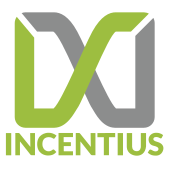8 Industries Embrace Blockchain Innovation Sumeet Shah February 9, 2023
What is blockchain?
- A blockchain is a distributed database that manages and stores data. Blockchain technology does not have a centralized control or database. It stores information in blocks that hold data and are linked to previously filled blocks, creating a data blockchain.
- There are mainly two types of blockchain systems – open & closed. Open blockchains allow the general public or huge audiences to access all the ledger data. And is also known as the ‘public’ blockchain. Closed blockchains are designed to restrict who can see the information stored within them. It is also known as a ‘private’ blockchain.
- When people use a blockchain-based app like cryptocurrency, they all work with the same database stored on many computers called “nodes”. Specific blockchain procedures are used to confirm these transactions to ensure everything is accurate and secure.
- Bitcoin is the best example of a decentralized digital currency that records and verifies transactions using blockchain technology. Did you know that the first Bitcoin transaction in real life cost 10,000 Bitcoin in exchange for two pizzas?
- 90% of US and European banks and financial institutions have started exploring blockchain technology. Walmart, Pfizer, AIG, Siemens, Unilever, and a plethora of other companies have already adopted blockchain.
- So far, over 400 applications have been developed on the blockchain platform, including identity management, SCM, and gaming. The community also offers several tools for customizing blockchain implementations for various decentralized use cases in SCM, healthcare, and DeFi.
8 most popular blockchain applications of 2023
1. Gaming
The video game industry is quickly adopting blockchain technology, specifically through non-fungible tokens (NFTs). In-game economies and unique items are frequently used in games, and NFTs provide a way to facilitate that economy while also ensuring that players’ items are accessible across games. GameFi is the best example of blockchain integration within the gaming industry. GameFi is a combination of gaming and decentralized finance (DeFi) that describes integrating blockchain applications in the gaming sector, other than, say, for monetization purposes. Small-scale publishers, in particular, take advantage of the ability to monetize their games by issuing such non-fungible tokens.
2. Manufacturing
Blockchain technology has several potential applications in the manufacturing industry, from supply chain management to quality control and compliance. One practical example of how blockchain is used in manufacturing is tracking product and component authenticity. By capturing each step of a product’s journey through the supply chain (on a blockchain), manufacturers can ensure that the products they receive are genuine and not counterfeit. They can better track the movement of goods and optimize their operations by creating a decentralized, secure ledger of supply chain data. Also, the combined power of blockchain and IoT can transform how businesses manage their products in this industry. With these two game-changing technologies, companies can unlock many benefits, including enhanced product safety, streamlined tracking capabilities, and more efficient warranty management. Industry analysts estimate that nearly 30% of manufacturers (with a revenue of over $5 billion) will incorporate blockchain into their industry 4.0 projects by 2023.
3. Supply chains
Using blockchain technology to track items moving through a logistics or supply chain network can benefit greatly. For starters, it facilitates partner communication because data is available on a secure public ledger. Second, because the data on the blockchain cannot be altered, it provides greater security and data integrity. As a result, logistics and supply chain partners can collaborate more easily, with greater confidence that the data is accurate and up-to-date. IBM Blockchain is used in the supply chain industry to improve supply chain operations’ transparency, traceability, quality control, provenance, payment processing and efficiency.
4. Finance
The world of finance has always been driven by innovation, from the invention of paper money to the advent of credit cards. However, despite all these advances, the system still has many inefficiencies, particularly regarding settlement and clearing times. In the stock trading industry, for example, it can take up to 3 days (or longer if trading internationally) for the settlement and clearing process to complete, which means that the money and shares are essentially frozen. This can incur high costs and risks for banks, given the magnitude of the sums involved. This is where decentralized finance (DeFi) comes in. Using secure distributed ledgers similar to the ones used by cryptocurrencies, DeFi represents a new and exciting way of conducting financial transactions. With DeFi, settlement and clearing times are reduced to near-instant speeds, meaning that money and shares can be transferred in a matter of seconds.
5. Healthcare
Blockchain’s smart contracts have significant potential to impact the healthcare industry. The blockchain platform codes these contracts to execute automatically when certain conditions are met, allowing parties to create contracts without intermediaries. They can also encode wearable health records to ensure privacy and security, as only authorized providers with a key can access them. In this way, smart contracts can aid in enforcing the HIPAA Privacy Rule, which is crucial for protecting patient information. Blockchain’s smart contracts represent a new era of innovation for the healthcare industry with the potential to streamline processes and improve patient outcomes.
6. Advertising
The digital advertising industry is currently plagued by issues such as ad fraud, lack of transparency, and a complex supply chain involving multiple intermediaries. Blockchain technology allows advertisers to create a decentralized, transparent, and tamper-proof platform for buying and selling digital ads. For example, the blockchain-based advertising platform, AdEx, uses a smart contract system to automate the buying and selling of ad space. Advertisers can create digital ads stored on the blockchain and set up automated bidding rules that are executed in real-time. Publishers can then monetize their ad space by selling it to advertisers directly, cutting out intermediaries and reducing costs. Eventually, it can also increase trust and confidence in the advertising industry, as advertisers can be confident that their ads are being displayed to real people securely and transparently.
7. Insurance
Traditionally, insurance policies and claims are stored on centralized databases vulnerable to data breaches and hacking. But with blockchain, insurers can create a secure and decentralized record of insurance policies and claims resistant to tampering and fraud. Blockchain can easily streamline the claims processing system, which we all know can be a real headache. The process is usually time-consuming and involves multiple parties. But with blockchain, the shared and transparent ledger allows all parties to access real-time information, speeding up the process and reducing errors. Enterprises can also leverage blockchain for risk management to analyze data from various sources and create predictive models that help in risk management. Insurance companies might anticipate a breakthrough from Ethereum’s smart contracts and decentralized apps in the forthcoming years.
8. Cyber Security
Blockchain has the potential to enhance cyber security in many ways, including the secure storage and transmission of data, verification of identities, and protection against fraudulent activity. It can generate a decentralized identity management system that eliminates the need for a central authority to verify identities. This ensures that users have control over their data and can securely share it with only those they trust. Utilizing a distributed ledger can render it extremely difficult for a hacker to manipulate any information kept on the blockchain. One of the best examples is DNS. The Domain Name System (DNS) is a public directory that connects domain names to their IP addresses. Over time, hackers have attempted to gain access to the DNS and exploit these links, resulting in site crashes. But with blockchain’s immutability and decentralized systems, the DNS can be securely stored.
Conclusion
Despite being a relatively new technology, blockchain has already shown great potential in revolutionizing businesses’ operations. In the last 15 years, companies have experimented with blockchain in various ways, yet the possibilities for its application are still being explored. As the world increasingly relies on digital technology, there is a growing demand for secure, transparent, and tamper-proof data storage and sharing. Blockchain technology has emerged as a promising solution to meet these needs. Its ability to ensure data integrity, establish trust, and facilitate decentralized transactions can transform industries ranging from finance and cyber security to supply chain management and more.



